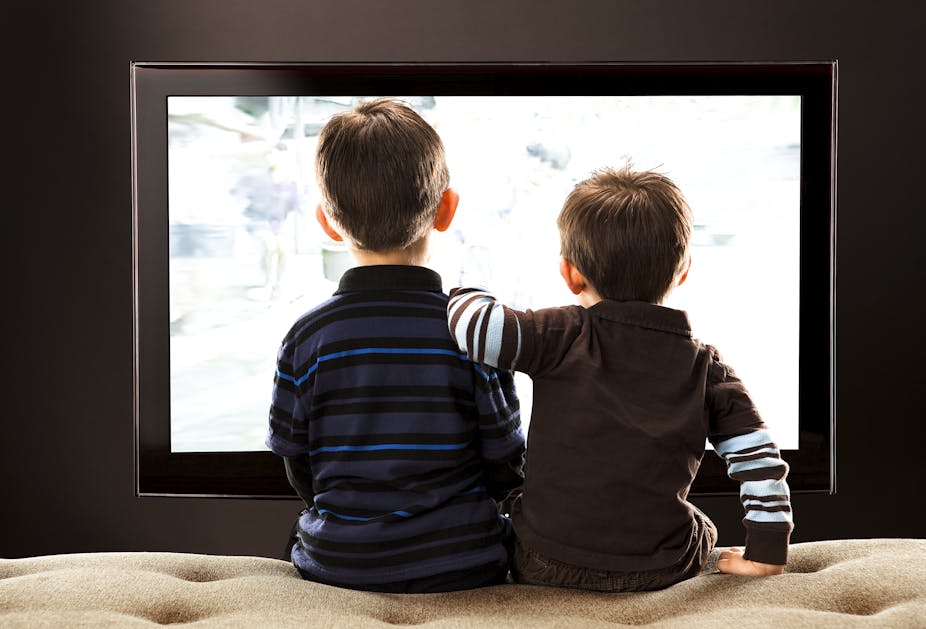The news coverage on COVID-19 is pervasive, persistent, and in my view as a professor of psychiatry, perilous. Sometimes it seems as though the pandemic is all we talk about.
As difficult as this experience is, it’s easier for educated adults than it is for children. We adults look through a lens of life experience; our perspective helps get us through. Less clear is how “all-COVID-all-the-time” impacts children who take it in without that perspective. The issue is particularly important to consider as many kids prepare to go back to school and others get ready to learn online.
When children discern that adults around them don’t fully understand something – or, in the case of COVID-19, that we can’t completely guarantee their safety – they might feel a sense of helplessness. Insecurity and fear will rule. A child may begin to believe the world is a dangerous place, and that the only way to survive is to be defensive, or worse, aggressive.
As children go through this crisis, they don’t have to be afraid. But as parents, we must lead the way. We must teach them to embrace the power all of us have – and then use it to make choices that create better outcomes.
As a practicing psychiatrist and a professor of psychiatry at the University of Southern California, I can tell you this is possible, even during a pandemic. As parents, teachers and citizens, it is our responsibility to provide children with context, limit catastrophizing and emphasize responsibility and control.

The four skills your child needs
Here are four skills you can start teaching your child today:
A healthy respect for what is dangerous. We’ve already told our children that walking across a street without looking can be fatal. Use crosswalks, follow the traffic lights, and look both ways, we always say. Similarly, we can treat COVID-19 as something out there, like a speeding car, but also something that can be anticipated and avoided. Through the choices we make, we can influence the outcome.
Make good choices. Wear a mask, stay away from others when outside and wash your hands when you touch anything that others may have touched. That doesn’t guarantee safety, but it greatly reduces the chance of getting sick. It also provides a child with a sense of control – and empowerment. Children learn that following the rules is a way to stay safe, and that the world, for all its dangers, is still a place where you can create a healthy and positive environment.
Respect for others. Wearing a mask in public protects other people, including parents, grandparents, neighbors and friends. Not wearing one shows disrespect for them. COVID-19 can be a tool to teach children that others matter, even if they’re strangers. Putting on a mask tells them they are not the center of the universe; instead, they are part of a society where the collective benefit is important. Disregard others, and others will have license to disregard you. Inherent in that message: You are not alone.
Learn to accept ambiguity. It’s OK if we don’t know. So much of society is built on the premise that it’s possible to understand everything. But smart people understand no one knows everything.

Teach humility and trust
Years of training are required to understand how viruses form, mutate and spread. Decades of work are essential to obtain a deep understanding of disease mechanisms and how therapies work.
But only humility and trust are needed to accept that doctors and scientists, with those decades of training, are collectively working to solve the problem. If it takes time, it only means the problem is difficult and won’t be worked out in a few days or weeks or even months. Tell your children that some things are not a quick fix, and that’s okay.
Putting all this into practice is doable. Minimize discussions about COVID-19 to times when there’s truly something to say. This will not be every day. When discussion takes place, emphasize that much can be done to reduce risk to ourselves and others. Make it clear that smart, capable, and compassionate people are working on the problem. Most of all, let them know this too shall pass, as long as we make smart choices and don’t panic. Do this, and your child can develop valuable life skills that last, not just during this crisis, but for a lifetime.

